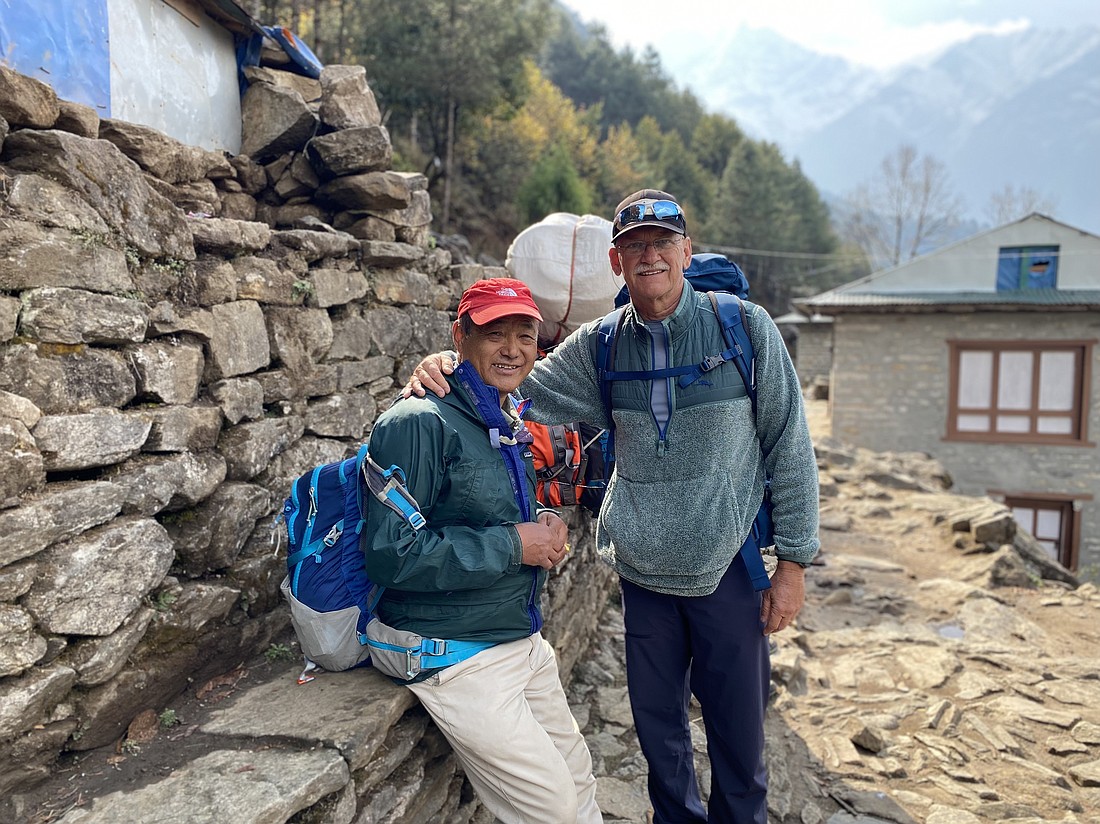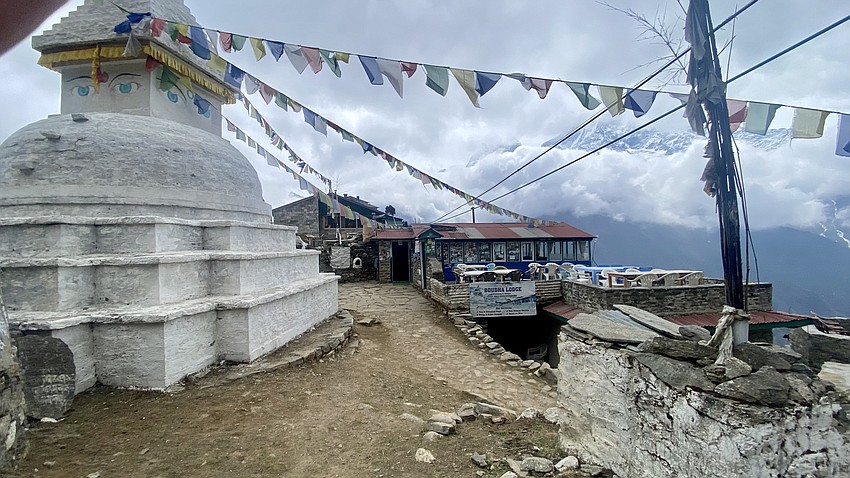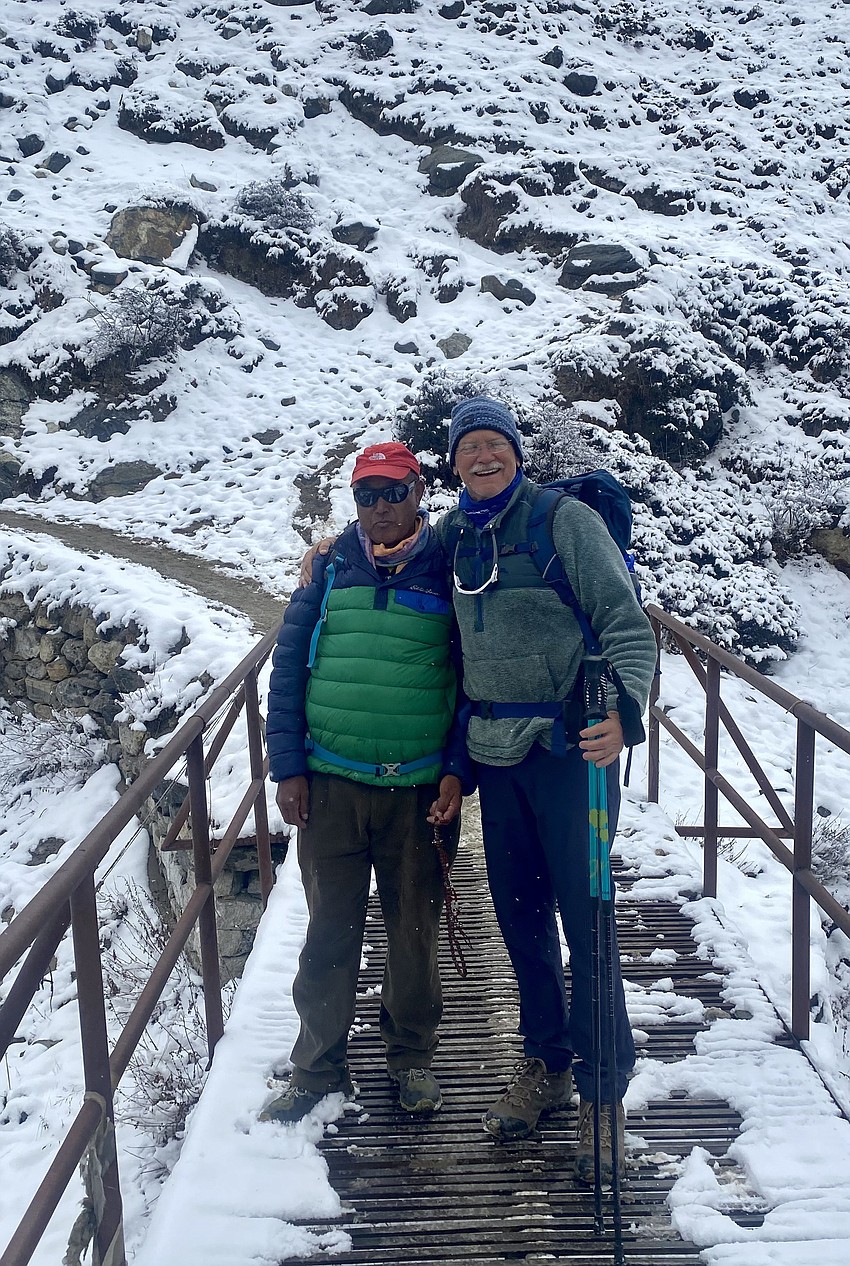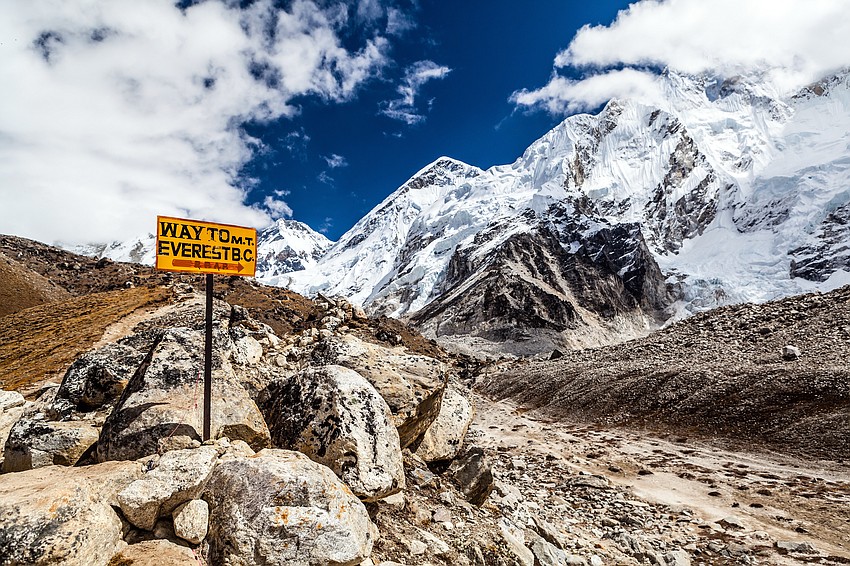- July 13, 2025
-
-
Loading

Loading

A man goes on a journey, and he comes back changed. It’s a story that’s been told over and over. Because we need to hear it again.
Sarasota real estate agent Robert Sherman is 63 years old. Fit. A year removed from his 95-mile trek to Everest Base Camp, he calculates he has eight, maybe 10 more years in strong health.
Retirement is a consideration. He’s more reflective now since returning, better able to consider the big questions. He’s also planning for another big mountain trek.
“What does working until I’m 71 do for me?” Sherman said. “So I really wanted to start thinking about experiences with my wife and my kids. And not giving them material things but giving them experiences.”
Sherman has lived in Sarasota for 34 years. He was trained as a minister before focusing on real estate where he’s done good business the past 24 years.
The fields are not so different, he explained. A minister counsels and guides through life’s big milestones. A good real estate agent must do the same — especially in this market.
Sherman had no intention of summiting on his trip. He just wanted to see Everest before it changes further. That’s the same reason he went to Machu Picchu two decades ago. It’s only a matter of time before the digital age claims every remote corner.
From the airport at Lukla in Nepal at 9,300 feet, the footpath to base camp climbs to an elevation of 17,598 feet. Now there’s cellphone service almost the entire way, said Sherman.
You can stay in Hyatt hotels as you go and steep yourself in five-star luxury. Sherman pursued a more authentic path. All-in his trip was less than $5,000.
“I’m never doing a big outfit group. I want it to be meaningful. Maybe that’s what I was looking for. … Where it was more than just get on a plane, come home, you know, go do it. And then check it off.”
Of course, there was still Wi-Fi throughout the villages and teahouses along the 35-mile route, even though what needs moving in the high Himalayas still moves on the shoulders of trekkers and porters, he said.

“You’ll see people carrying roofing, you know, metal roofing, because that’s how you get it up there.”
Someday, probably not too far in the future, the footpath will become a road, Sherman said. Even now no one returns from Everest without mentioning the litter.
“It killed me, absolutely killed me,” said Sherman.
He trained for about six months beforehand, hiking and trekking in the Appalachians. Nothing too technical, because whether you’re going to the base camp or the top, Everest is more of an endurance test than a technique one.
With two hiking buddies, Sherman flew to Nepal. He’d never been apart from his wife and children for so long — 21 days.
That was hard, he said. There was some resistance to the trip at first.
And then there was the altitude.
The 35-mile distance between points becomes more than 90 due to the repeated acclimatization hikes that need to be taken up side trails along the way.
It took nine days for Sherman, his two hiking partners and their guide, Sherpa Pema Dorje, to reach base camp. There might have been 2,000 people up there. But only a fraction make it to the summit at 29,032 feet.
“It’s a sea of orange tents. That’s all it is. It’s just tent after tent after tent,” said Sherman.
The vistas were rare, spectacular, but it’s a cliché for reason: it wasn’t the destination that changed Sherman, it was the journey. And the company.
Along the way Pema Dorje showed them another way of living.
Sherman and his group stopped in Sherpa-owned teahouses and ate vegetable stews and conversed over ginger tea. They stopped at one of the teahouses Dorje himself owns. His name opened doors and local families welcomed the group. Sherman said Dorje has summited Everest five times, starting in the early 1980s.
“I call him the mayor of Kathmandu. He knew every human being,” said Sherman.
During the trip, Sherman’s group passed a small group of trekkers from Seattle, Washington. Suddenly a voice called out from the head of the Seattle group, “Pema! Pema!”

It was Pema Dorje’s niece. They hadn’t arranged to meet on the path, it was a happy accident.
Soon Sherman followed Dorje’s lead. One of Sherman’s hiking partners called him the “friendliest man on the mountain.”
“I think everybody’s got some great stories to tell. And I just didn’t want to miss them,” Sherman said.
Sherman has several more of his own now. About how much he learned from Dorje, starting with the most basic of human functions: How to breathe.
As Dorje led them up the path, he worked between his fingers a string of prayer beads held behind his back and chanted a steady rhythm. An active meditation.
“It helped me, it made such a difference,” Sherman said. “(His breathing) was more rhythmic. I would just follow right behind him. Like within a couple of feet, I would be behind him just in that same mode and that same cadence.”
Sherman was mostly unaffected by the altitude, even at the trip’s apex, despite limited high-mountain training.
“I didn’t feel like I was working as hard. And then all of a sudden, I’m blowing past my friends. Like not tired. Not winded, not anything.”
But the real lessons of the journey weren’t physical, although Sherman lost 10 pounds in as many days. Through Dorje, Sherman saw up close a life in harmony. Dorje was full of love, for his family, for his job, for the hikers he was leading, Sherman said.

After a long day on the trail Dorje took joy in his charges’ laughter. Their happiness and success genuinely brought Dorje joy, Sherman said. And there’s something to be said for the wind, sun and stars in the high Himalayas.
So here maybe we run into another cliché. Something about finding a job you love and never having to work again.
“He hugged me every day,” said Sherman. “He embraced me every day. He loved on me every single day. Who does that? He didn’t treat it like a job. He treated it like he was opening my eyes to a whole ‘nother world.”
Which brings us back to this world, right here and now in Sarasota.
Life looks different to Robert Sherman. He looks out from the window of a downtown real estate office at the cars passing by. People in a hurry.
Some people get that look at 87, others find it at 22, while some never get it at all.
Robert Sherman is 63 years old. Fit. He calculates he has eight, maybe 10 more years in good, strong health.
He still talks on the phone with Dorje every few weeks.
“I will tell you I take nothing for granted anymore. Nothing. I wake up and I’m like, I’m so happy that I’m healthy. That I have a wife who loves me. How lucky I am to even be able to go to a place like that, to have that experience.
“That was the biggest takeaway for me. And I will tell you, I love my wife more deeply. I love my kids more thoroughly. Wow. And I think part of that was my relationship that I built with Pema.”